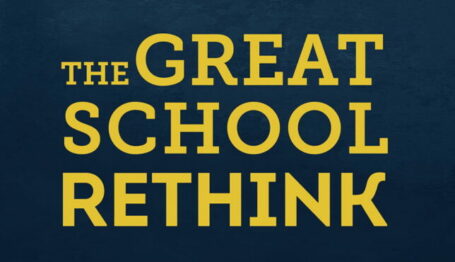Education Reform
The Crisis of Exploitation in the Classroom: Educational Malfeasance
 Teachers’ unions are to the education of students what a ball and chain are to a swimmer. Credit: Sheila Fitzgerald. License: Shutterstock.
Teachers’ unions are to the education of students what a ball and chain are to a swimmer. Credit: Sheila Fitzgerald. License: Shutterstock.

The Crisis of Exploitation in the Classroom (full series)
The Past Is Prologue | Educational Malfeasance
Teachers’ Unions | Growing School Competition
Educational Malfeasance
Throughout my travels both inside and outside the United States, I have witnessed first-hand the effects of malfeasance by school administrators. I have seen the humans, not the statistics, behind failed policies that caused bad education. I have spoken to the children who, despite being in their younger years, are already counting down to their final days, awaiting death by a botched robbery, a stray bullet, a petty dispute, or a gang-style killing.
What I have come to realize throughout my time traveling the United States and seeing those handicapped by a lack of education, is that much deeper strife has been created within people and throughout society. With a climbing number of uneducated paired with nearly boundless methods of earning a living, many have come to believe that education is not necessary for a successful life—that what matters most is one’s ability to make money. This has led students who cannot read or write to pursue careers divorced from education.
Many turn to the internet to make a living through jobs requiring no skills. This is enticing for some, as studies show that there are millions of influencers in the United States— persons whose job it is to entertain others on social media and influence others. While there are certainly influencers who are intelligent and who are subject matter experts, the proliferation of this trade has caused many in the younger generation who view influencing as a viable future profession, absent any education.
Education is not necessarily a college degree. It is not learning mathematics or mastering complex, specific subjects such as biochemistry or neurology. Instead, education is the critical thinking that is the taproot of success in any line of work irrespective of complexity. A person who has difficulty reading will be unable to pursue a career in law and a career in vehicle maintenance equally. If he cannot read, then he certainly cannot comprehend legal textbooks much less repair guides and manuals. Without that ability to read he cannot even undertake general life activities, such as purchasing a home, as he would be unable to read or understand the contract or undertake any employment that requires him to read and comprehend words critical to his job.
That is why education involves a broad spectrum of things that enable people to do other things. We have failed to realize that a good education is not just a college degree but also learning a trade. If a person who completes high school knows how to read, he does not necessarily have to spend tens of thousands of dollars to obtain a degree at a university, he could be just as well off if he were to undertake the process of learning a trade such as plumbing. As I was told during a Crisis in the Classroom town hall by a criminal lawyer about his brother repairing his pipes, he looked at the bill after the family and friends discount and, as a lawyer, second-guessed whether the countless hours he spent obtaining a legal degree and concurrently the pile of advanced degrees that come with the promise of high pay, really were all that worth pursuing if one only pursued them for monetary gain.
In other words, money can be made without a college degree by acquiring skills for which there is a high demand but a slender supply. The law of supply and demand at work. We are all born with different aptitudes.
It is the role of schools and our teachers to inculcate critical thinking and eschew indoctrination. Unfortunately, our teachers are underpaid and overworked and overstressed and underappreciated. Administrators often look to teachers as scapegoats for criminal activity to enrich themselves through deceit and cover-up.
Money, whether we like it or not, is the great equalizer. It incentivizes individuals to work harder and be more efficient in the furtherance of a future filled with the comfort and pleasures that money provides. Certainly, teachers should become teachers because they want to teach the next generation of leaders; however, internal morality and motivation can only take a person so far when they are destitute.
Teachers should be paid like CEOs; we should take advantage of their desire to do good for their students and motivate them further by providing them with pay incentives based on their students’ performances. We can be sure that there will be those who will cut corners and fudge numbers for extra pay, but we can be equally sure that those people will represent an infinitesimally small minority and that, with the proper safeguards put in place, the government can create a structure that holds those bad actors accountable.
One would think that with billions of dollars and yearly funding each school system would be able to pay their teachers not just a livable wage but a wage that allows them to live comfortably and will enable them to teach their students without stress. However, when speaking to a guest during one of my town halls, she concluded that although much money is given to school systems, far too much is squandered within their bureaucracies. In her eyes, there are generally far too many levels of bureaucracy in educational systems that force them to spend more and more money as more of it continues to be wasted every year.
In the next installment, teachers’ unions advance the interests of teachers, not students.



